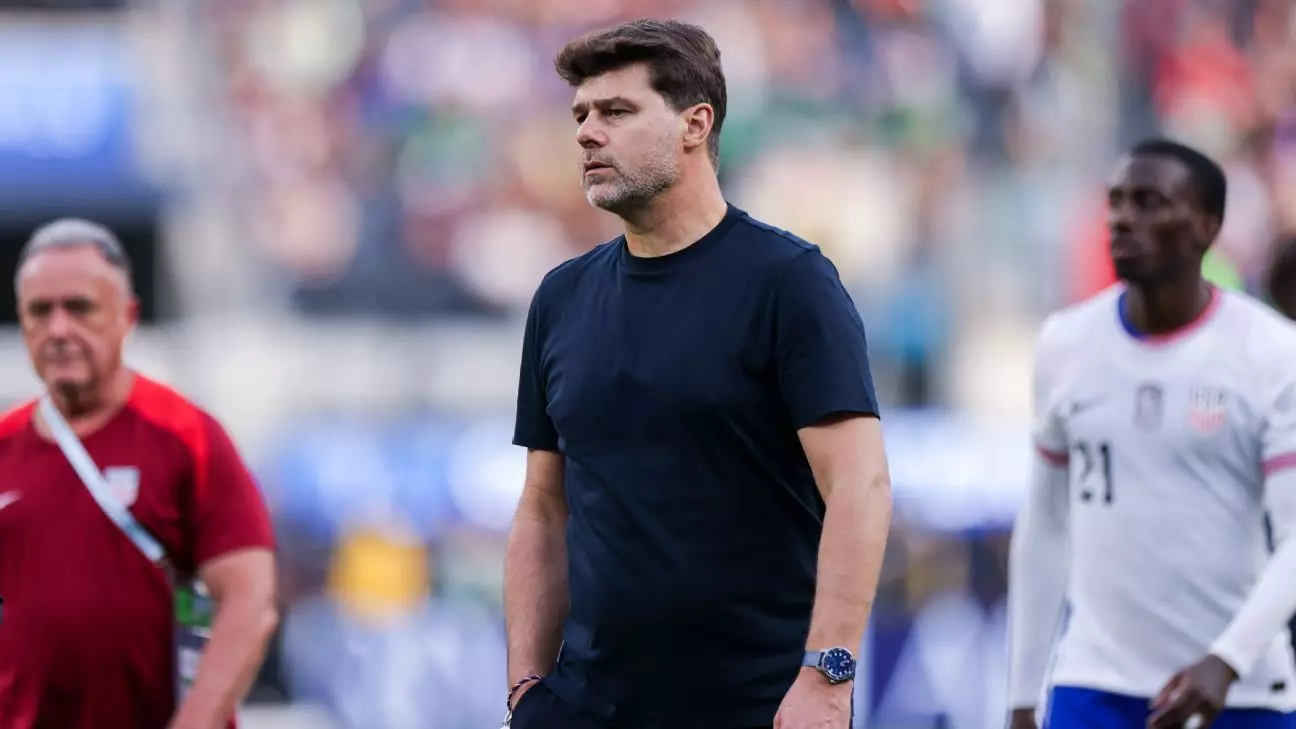In the world of sports, coaching philosophies can significantly influence a team’s performance. This sentiment resonates deeply with Bruce Arena, former head coach of the United States Men’s National Team (USMNT). As he critically assessed the appointment of Mauricio Pochettino—an Argentine with a formidable reputation in club football—Arena raised a pivotal issue: the cultural disconnect that often accompanies foreign coaches in American soccer. While Pochettino’s accolades are unquestionable, Arena’s argument emphasizes an aspect often overlooked: the necessity of cultural acclimatization for effective leadership within national teams, particularly in a diverse nation like the United States.
Foreign coaches have long interspersed American soccer history, with figures like Jürgen Klinsmann and Bora Milutinović leaving indelible marks. Nonetheless, Arena poignantly notes that the success of a national team does not merely hinge on tactical acumen; it requires a profound understanding of the national psyche, values, and the unique societal dynamics at play. In highlighting this, Arena advocates a traditional viewpoint that prioritizes domestic knowledge. His assertion, that “coaching international football is different than club football,” is an acknowledgment of the emotional and cultural layers entwined with national pride.
Analyzing Recent Struggles: Performance Under Pressure
The recent lackluster performances from the USMNT, particularly their disappointing outings in the Concacaf Nations League Finals, underscore the validity of Arena’s concerns. The team suffered defeats against Panama and Canada, raising significant questions regarding their mental resilience and competitive edge. These games are not just statistics; they are critical reflections of a team’s character and preparedness for the intense scrutiny and pressure that accompanies international competitions.
The atmosphere following these games was fraught with disappointment, highlighted by Pochettino’s own reflections on the team’s mentality. His recognition that mere talent is insufficient for success sets an urgent tone for the USMNT. Such assertions call into question not only his assessment of his players but also the foundation of the training and preparation overseen by someone who, while intellectually skilled in football, may not entirely grasp the essence of what the national team represents to its citizens.
A Call for American Identity in Coaching
The distinction Arena enforces regarding the significance of cultural understanding is powerful. In a nation characterized by its cultural melting pot, the nuances of identity matter. Coaches need to connect with players on a level that transcends mere strategy; they must tap into the emotional reservoirs that athletes draw from in times of both triumph and adversity. The pride associated with wearing the national colors cannot be fabricated nor can it be fully understood from an external standpoint. Arena’s insistence on this aspect highlights a gap in Pochettino’s coaching approach that could be detrimental as the U.S. approaches the crucial 2026 World Cup.
Imagining an alternative scenario, the presence of an American coach may harness an authentic sense of pride that aligns seamlessly with the players’ ethos. A coach who shares in the cultural identity and understands the gravity of representing the United States on a global stage cultivates a foundational motivation that is crucial in high-stakes environments. It is not just about winning matches; it is about fostering a robust team identity capable of withstanding the pressures of international competitions.
The Path Forward: Bridging the Cultural Gap
Looking ahead to the 2026 World Cup, the urgency for immediate cultural integration in the coaching staff could shape the future of American soccer. As Arena pointedly notes, there’s only a year left to prepare a team that is not just technically skilled but also mentally fortified and deeply connected to the essence of their nation. This understanding must be a focal point for the U.S. Soccer Federation moving forward, as neglecting the cultural dimensions of coaching could hinder the team’s chances at fielding a truly competitive squad.
While the formidable task of preparing the USMNT rest with Pochettino, the conversation initiated by Arena opens pathways for introspection and change. Acknowledging the gaps in cultural understanding within the coaching dynamic is not a critique of Pochettino’s abilities but rather a clarion call for a future where U.S. soccer embraces a holistic approach to coaching—one that values domestic knowledge alongside tactical expertise.

